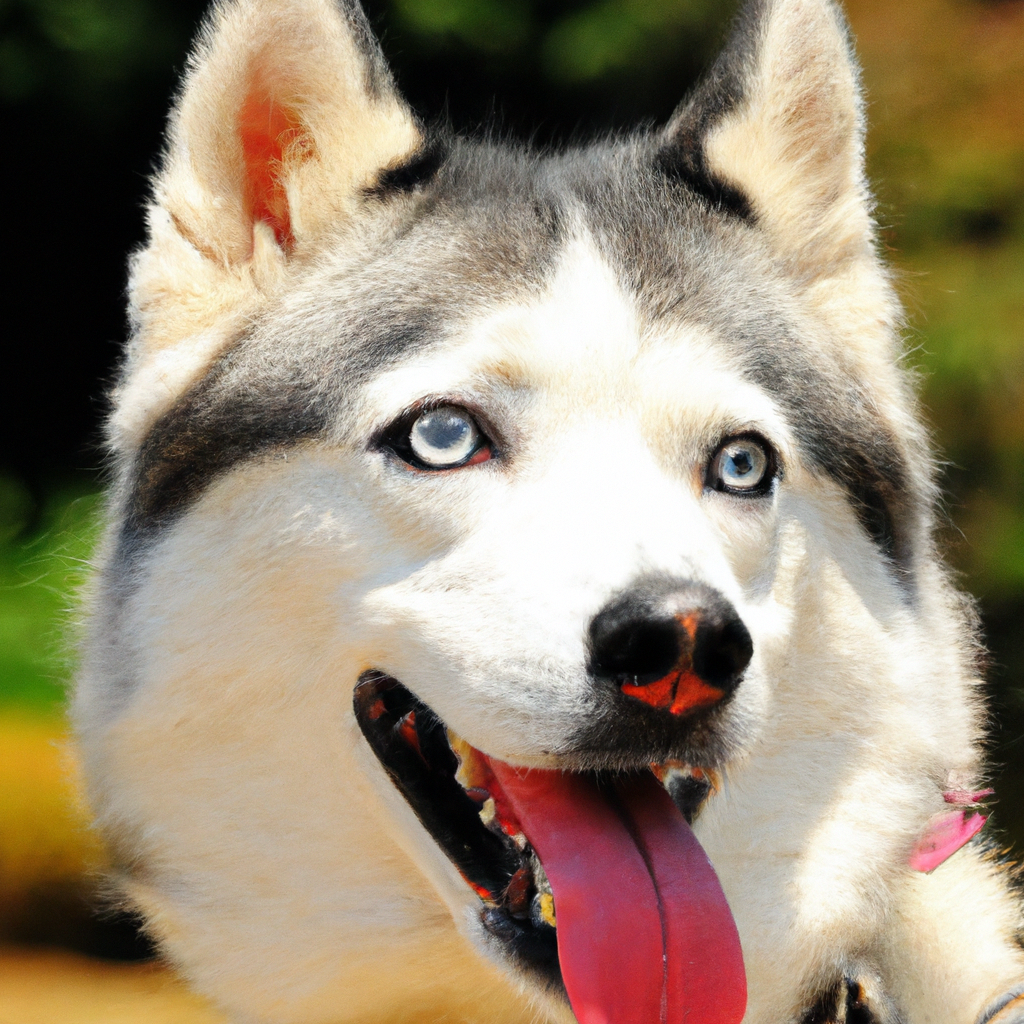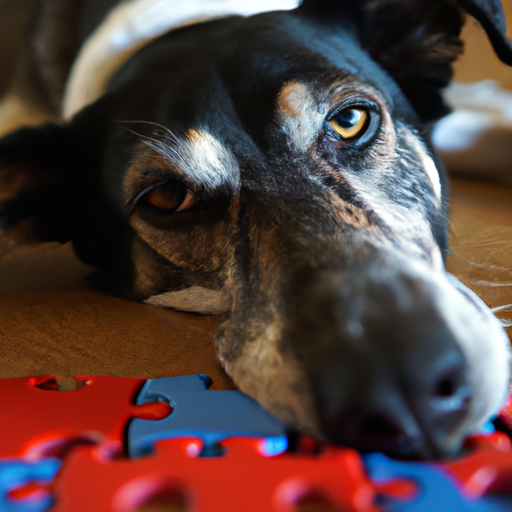As your furry friend grows older, their overall wellness becomes a top priority. It’s essential to provide them with the right care and attention to ensure they live a long and happy life. From regular exercise and a nutritious diet to regular vet check-ups and mental stimulation, there are various ways you can help your aging dog stay healthy and vibrant. By understanding their specific needs and making adjustments to their lifestyle, you can ensure that your beloved companion enjoys their golden years to the fullest.
Exercise
Regular exercise
Regular exercise is essential for maintaining your senior dog’s overall wellness. It helps to keep their weight under control, strengthen their muscles, and improve their cardiovascular health. Engaging in regular exercise also helps to prevent obesity and the associated health problems that can arise from it. It is important to note that the exercise routine should be tailored to your dog’s age, health condition, and breed-specific needs. Exercise can include activities such as walks, gentle runs, swimming, and playtime with appropriate toys.
Joint-friendly activities
As your senior dog ages, joint health becomes increasingly important. Joint-friendly activities are those that minimize stress and impact on your dog’s joints. It is important to choose low-impact exercises that still provide mental and physical stimulation, without putting excessive strain on their joints. These activities can include short walks on soft surfaces, gentle swimming, and activities that involve controlled movements, such as canine fitness classes or agility training.
Mental stimulation
Keeping your senior dog mentally stimulated is just as important as keeping them physically active. Mental stimulation helps to prevent cognitive decline and keeps your dog’s mind sharp. You can achieve this by engaging in activities that challenge their cognitive abilities, such as puzzle toys, training sessions, and interactive games. Mixing up their routine and introducing new experiences can also provide mental stimulation and keep them engaged and curious.
Nutrition
Specialized senior dog food
Switching to a specialized senior dog food can address your older dog’s changing nutritional needs. Senior dog food formulas are specially formulated to support their specific needs, such as joint health, weight management, and overall vitality. These formulas often contain optimal levels of protein, healthy fats, and essential nutrients, along with added ingredients like glucosamine and chondroitin to support joint health. Consulting with your veterinarian can help determine the best senior dog food for your furry friend.
Balanced diet
A balanced diet is crucial for your senior dog’s overall wellness. It is important to provide them with a variety of high-quality, nutrient-dense foods. This includes lean proteins, healthy fats, whole grains, and plenty of fruits and vegetables. Avoid feeding them excessive amounts of treats or table scraps, as these can lead to weight gain and nutritional imbalances. Monitoring their food intake, ensuring they are receiving the appropriate amount of calories for their age and activity level, is essential for maintaining a healthy weight.
Supplements
In addition to a balanced diet, certain supplements can support your senior dog’s overall wellness. Joint supplements, such as glucosamine and chondroitin, can improve joint function and mobility. Omega-3 fatty acid supplements can promote healthy skin and coat, reduce inflammation, and support cognitive health. It is important to consult with your veterinarian before starting any supplements to ensure they are safe and appropriate for your dog’s specific needs.
Veterinary Care
Regular check-ups
Regular check-ups with your veterinarian are crucial for maintaining your senior dog’s overall wellness. These check-ups allow your vet to assess your dog’s health, monitor any age-related conditions, and catch potential health problems early on. During these visits, your vet will perform a thorough physical examination, including checking your dog’s weight, dental health, and vital signs. They may also recommend additional tests, such as bloodwork or X-rays, to assess their overall health.
Dental care
Maintaining good dental health is vital for your senior dog’s overall well-being. Poor dental hygiene can lead to dental diseases, which can have a significant impact on their overall health. Regular brushing of their teeth with a dog-friendly toothbrush and toothpaste can help prevent plaque buildup and gum disease. Additionally, providing dental treats or toys designed to promote dental health can also contribute to maintaining their dental hygiene. If needed, your vet may recommend professional dental cleanings to address any existing dental issues.
Vaccinations
Keeping your senior dog up to date on vaccinations is essential for their overall wellness. Vaccinations protect your dog from various diseases that can be especially harmful to their aging immune system. Your vet will advise you on the recommended vaccination schedule for your dog based on their lifestyle, health condition, and potential exposure risks. Regular vaccinations help to prevent diseases such as rabies, distemper, parvovirus, and Bordetella, among others.
Weight Management
Maintaining ideal weight
Maintaining an ideal weight is crucial for your senior dog’s overall health and wellness. Obesity can lead to a range of health problems, including arthritis, diabetes, heart disease, and respiratory issues. Regularly monitor your dog’s weight and body condition, and consult with your veterinarian to determine their ideal weight range. Adjust their diet and exercise routine accordingly to ensure they are consuming an appropriate number of calories and engaging in regular physical activity to maintain their weight within the recommended range.
Portion control
Controlling portion sizes is an important aspect of weight management for your senior dog. Overfeeding can lead to weight gain, while underfeeding can lead to nutritional deficiencies. Follow the feeding guidelines provided by your dog food manufacturer, but also consider factors such as your dog’s age, activity level, and metabolism. It can be helpful to consult with your veterinarian to determine the appropriate portion sizes and make adjustments as needed.
Healthy treats
Treats can play a role in weight management for your senior dog. Opt for healthy, low-calorie treats that are specifically formulated for older dogs. These treats can provide additional nutrients and contribute to your dog’s overall wellness. Be mindful of the quantity of treats given and factor them into their daily caloric intake. Additionally, treats should not exceed 10% of their daily caloric requirements, as excessive treat consumption can lead to weight gain.
Mobility Support
Orthopedic bed
Providing your senior dog with an orthopedic bed can offer them extra support and comfort. These beds are designed with memory foam or other supportive materials that cushion their joints and relieve pressure points. Orthopedic beds can help alleviate discomfort from arthritis, hip dysplasia, or other joint-related issues. It is important to choose a bed that is the appropriate size and thickness for your dog, allowing them to easily get on and off the bed while providing adequate support.
Assistive devices
For dogs with mobility issues, assistive devices can greatly improve their quality of life. These devices can include harnesses with handles to assist with getting up or down stairs, ramps for easier access to elevated surfaces, or mobility carts for dogs with severe mobility challenges. Consulting with your veterinarian or a professional dog mobility specialist can help determine which assistive devices would be most beneficial for your dog’s specific needs.
Physical therapy
Physical therapy can be a valuable tool in maintaining and improving your senior dog’s mobility. Physical therapy techniques, such as therapeutic exercises, hydrotherapy, and massage, can help strengthen their muscles, improve circulation, and reduce pain or inflammation. Regular physical therapy sessions can also help with the management of chronic conditions, such as arthritis or hip dysplasia. It is important to work with a certified canine physical therapist for proper guidance and to ensure safe and effective therapy sessions.
Health Monitoring
Regular screenings
Regular screenings, such as bloodwork and urine analysis, can provide valuable insight into your senior dog’s overall health and help detect early signs of illness. These screenings can assess organ function, blood cell counts, and hormone levels, among other important indicators. Regular screening tests can catch underlying health conditions early on and allow for prompt treatment and management.
Monitoring vital signs
Regularly monitoring your senior dog’s vital signs at home can provide valuable information about their overall wellness. This includes monitoring their heart rate, respiratory rate, body temperature, and hydration status. Familiarize yourself with what is normal for your dog, and if you notice any significant changes, consult with your veterinarian for further evaluation.
Detecting early signs of illness
As your dog ages, it becomes increasingly important to be vigilant for any early signs of illness or health concerns. Watch for changes in their appetite, thirst, weight, energy levels, behavior, or appearance. Common signs of illness in senior dogs can include lethargy, weight loss, increased drinking or urination, difficulty breathing, limping, changes in bowel movements, and changes in coat quality. If you notice any concerning changes, it is important to consult with your veterinarian for a thorough examination and appropriate diagnostic tests if needed.
Dental Hygiene
Brushing their teeth
Regular brushing of your senior dog’s teeth is essential for maintaining good dental hygiene. Use a dog-specific toothbrush and toothpaste to gently brush their teeth in a circular motion. Daily brushing is ideal, but if that is not feasible, aim for at least a few times a week. Brushing helps remove plaque, prevent tartar buildup, and reduce the risk of gum disease. Introduce toothbrushing gradually and make it a positive experience for your dog by using rewards and praise.
Dental treats/toys
In addition to regular toothbrushing, providing dental treats or toys can contribute to your senior dog’s dental health. Chewing on appropriate dental treats or toys can help clean their teeth, massage their gums, and reduce plaque buildup. Look for products specifically designed to promote dental health, and ensure they are appropriate for your dog’s size and chewing style to prevent choking hazards.
Professional cleanings
Regular professional dental cleanings performed by your veterinarian are an important aspect of your senior dog’s dental hygiene. These cleanings involve a thorough examination, scaling to remove plaque and tartar, and polishing to smooth the tooth surfaces. Professional cleanings are performed under anesthesia to ensure a safe and thorough cleaning. Your veterinarian will advise you on the recommended frequency of dental cleanings based on your dog’s individual needs and oral health condition.
Emotional Well-being
Socialization
Maintaining regular social interactions can have a positive impact on your senior dog’s emotional well-being. Continue to expose them to other well-behaved dogs, family members, and friends. Socialization can also include outings to dog-friendly places or attending group dog training classes. These interactions help keep your dog mentally stimulated and prevent social isolation.
Routine and predictability
Establishing a routine can provide a sense of stability and predictability for your senior dog. Dogs thrive on consistency and having set daily routines for feeding, exercise, playtime, and rest. A predictable routine can reduce stress and anxiety while promoting a sense of security and comfort.
Separation anxiety
Some senior dogs may experience separation anxiety as they age, especially if they have been used to constant company or have experienced significant changes in their household. To help alleviate separation anxiety, gradually increase periods of separation and provide them with mentally stimulating toys or activities to keep them occupied in your absence. In severe cases, consult with a professional dog behaviorist or veterinarian for additional guidance and support.

Joint Health
Supplements for joint health
Supplements specifically formulated to support joint health, such as glucosamine and chondroitin, can be beneficial for your senior dog’s joint health and mobility. These supplements can help reduce inflammation, promote cartilage health, and alleviate pain associated with arthritis or age-related joint conditions. Consult with your veterinarian to determine the appropriate dosage and type of supplements for your dog’s specific needs.
Gentle exercise
Engaging in regular, gentle exercise is essential for maintaining your senior dog’s joint health. Regular physical activity helps to keep their joints mobile, relieve stiffness, and reduce the risk of muscle atrophy. Opt for low-impact exercises that minimize stress on their joints, such as short walks, gentle swimming, or controlled exercises tailored to their specific needs.
Avoiding excessive strain
As your senior dog’s joints become more susceptible to injury, it is important to avoid activities that can put excessive strain on their joints. Avoid activities or exercises that involve jumping, abrupt changes in direction, or running on hard surfaces. Opt for exercises and activities that provide mental and physical stimulation without putting undue stress on their joints.
Maintaining Mental Acuity
Mental puzzles and games
Engaging your senior dog in mental puzzles and games can help maintain their mental acuity and prevent cognitive decline. Introduce interactive toys, treat puzzles, or hide-and-seek games that challenge their problem-solving skills and keep their minds active. These mental exercises help stimulate their brain and provide a sense of accomplishment.
Training and obedience
Continuing to engage in training and obedience exercises can help keep your senior dog’s mind sharp. Regular training sessions not only reinforce good behavior but also provide mental stimulation and strengthen the bond between you and your dog. Keep training sessions short, focus on positive reinforcement techniques, and adjust the difficulty level to match your dog’s abilities.
Environmental enrichment
Enriching your senior dog’s environment can help stimulate their senses and keep them mentally engaged. Provide them with a variety of toys, puzzles, and interactive feeding devices that require problem-solving and skill adaptation. Rotate their toys regularly to maintain their interest and introduce new experiences to keep their minds active and curious.


